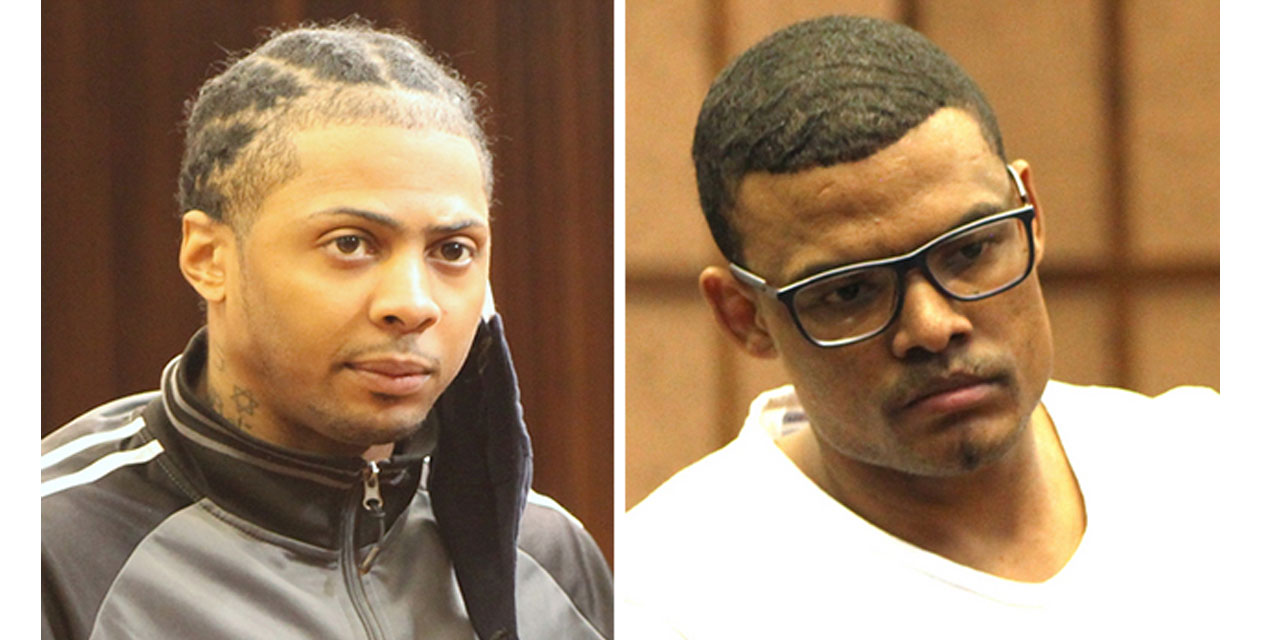Hertta-Maria Amutenja
Two American nationals who stand accused of murdering Namibian national, Andre Heckmair in Windhoek in 2011 suffered another blow in the High Court yesterday, after their application for a discharge in accordance with section 174 was dismissed.
The two men wanted the charges against them withdran, citing the state did not acquire sufficient evidence against them, when it concluded it’s case. Judge Christie Liebenberg in his ruling yesterday said the state has made out a prima facie case against Marcus Thomas and Kevan Townsend to which they should answer.
“The approach to circumstantial evidence is not to consider it piecemeal but rather to allow a holistic approach at least as far as it concerns the individual charges brought against the accused persons.
There is sufficient evidence from which the court, in the end, may draw inferences which justify the requirements laid down in case law. When the evidence is considered in its totality, the state has made out a prima facie case against the accused persons which they should answer to,” said Liebenberg.
After the state closed its case in their long-running trial defence lawyers Salomon Kanyemba and Mbanga Siyomunji claimed that despite the state presenting several witnesses, the prosecutorial team failed to prove its case beyond a reasonable doubt and did not provide evidence in court linking the two men to the murder to convict them.
Kanyemba submitted on behalf of Thomas that, in respect of the murder charge, it is argued that the evidence presented did not establish a causal nexus between the accused and the commission of the crime or the crime scene.
“Guided by established principles regarding the requirements laid down in s 174 of the CPA, no evidence has been adduced by the state against accused 1 upon which a reasonable court, acting carefully, may convict. Hence, the accused should be found not guilty and discharged on all charges,” Kanyemba argued.
Siyomunji, on behalf of Townsend submitted that there was no firearm, spent cartridge, Heckmair’s wallet or cell phone found in a search conducted of room 5 at African Sky guesthouse on 7 January 2011 where the two were booked.
“He argued that the purpose of visiting the place where the accused persons were booked in, was to search for the firearm, spent cartridge, the deceased’s wallet and cell phone, as well as the phone from which the last contact with the deceased was made. These items would have established a link between the accused persons and the murder scene. It was submitted that, as none of these items was found with the accused, no such link or connection could be made with either of the accused,” Judge Liebenberg stressed the suspects’ point of view.
State representative Antonia Verhoef argued that Although the firearm could not be traced during the police investigation, two gun barrels and a pair of black gloves were discovered in a briefcase in the room they were booked “Among the items seized by the police during a search of the room on 9 January 2011, were several cell phones, a street map of the area where the murder was committed and a notebook. The notebook contained notes about firearms with specific features like threaded barrels and where it could be obtained,” she argued.
Lienberburg further said the evidence further discloses proof that Thomas came from Finland and brought into Namibia a silencer for a firearm that was later found in their possession in the guesthouse they were staying.
There were no known eyewitnesses to the killing, and the police have not found the firearm used in the shooting.
Thomas and Townsend were arrested on the evening of 7 January 2011 at a guest house where they were staying in Windhoek.
The state is alleging that they travelled from the United States to Namibia near the end of December 2010 to carry out a plan to murder Heckmair, who was a student at a hospitality school in Switzerland and had lived and worked in New York City during 2010.
Thomas and Townsend have both been held in custody since their arrest in January 2011. Yesterday, they closed their case without calling witnesses in their favor. The matter has, in the meantime been postponed for oral arguments before a judgment on conviction is delivered.




